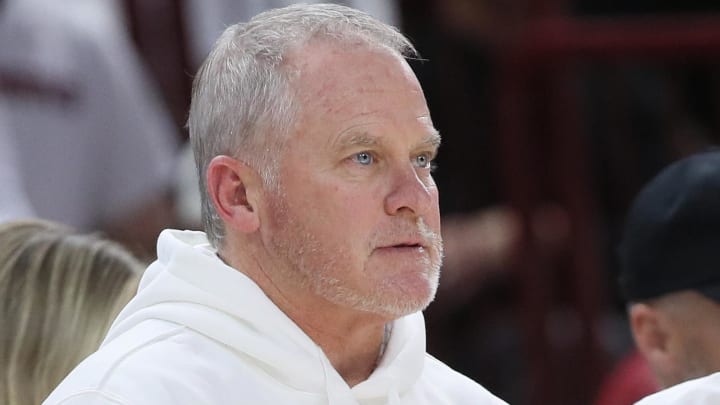Teams Behind Like Hogs, Litigation May Offer NIL Lifeline

FAYETTEVILLE, Ark. — Arkansas is behind in the NIL collective game. It's been written about at length.
The tracker for the number of fan memberships was ominously stuck on 782 before being removed entirely following a new director being hired last week. By the way, memberships are the number of individual donors willing to give at least $25 a month of non-tax deductible donations to the Razorbacks. The website still lists the first major milestone as 1,000 members, a far cry from the "Drive for Five" announced in the spring.
However, the common question has always been why can't ticket sales, concessions and all the other money that Arkansas generates go towards NIL? The simple answer for now is because the NCAA says so. That may be subject to change starting in 2025-2026.
According to a press release from the NCAA, formal settlement documents were filed in three cases: House v. NCAA, Hubbard v. NCAA and Carter v. NCAA. What occurs out of these three cases may shift the entire landscape of college sports again.
On top of the increase in scholarships across all sports and the implementation of roster caps, each Power Five University will be able to provide up to 22% of the "average Autonomy 5 athletic media, ticket, and sponsorship revenue to student-athletes, starting in the 2025-26 academic year." The release also specifies that third-party NIL deals do not count towards the cap, but will need to be "disclosed to a clearinghouse for review."
On top of the required future athletes' payments, the NCAA will be forced to pay back damages dating back 10 years of up to $2.78 billion. According to Jesse Dougherty of the Washington Post, 59% of that would come from the school directly, mostly from the NCAA withholding some of their annual payouts of March Madness revenue.
Dougherty also explains that the NCAA hopes that the settlement will "neuter the donor-funded collectives that have had a massive influence in football and men’s basketball recruiting."
For a school like Arkansas, that may just be music to its ears. A world where Baum-Walker hot dogs can pay for the next Razorback and not a membership program, that for all intents and purposes, has failed to get off the ground.
The settlement now must be approved by Senior U.S District Court Judge Claudia Wilken before it can take effect.
HOGS FEED:
• Five-Star point guard makes college decision Friday
• Commitment Primer: Arkansas closes in on pledge from North Louisiana
• One aspect of losing walk-ons can affect Razorbacks' history
• Subscribe and follow us on YouTube
• Follow allHOGS on X and Facebook
